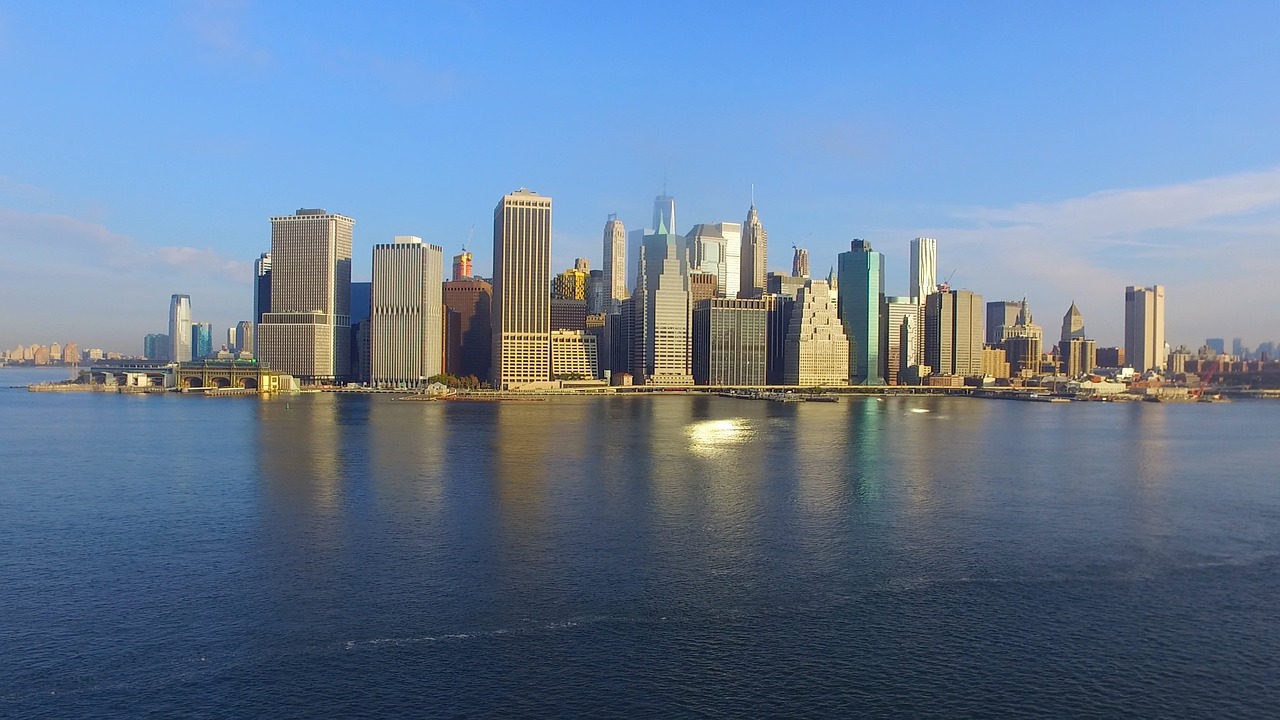Diplomacy – the art of negotiation and communication between nations – is more than just handshakes and photo ops. It’s the cornerstone of international relations, a critical tool for preventing conflict, fostering cooperation, and shaping a more stable and prosperous world. Understanding the nuances of diplomacy is essential for anyone interested in global affairs, international business, or simply being an informed citizen. This blog post will delve into the core principles, methods, and significance of diplomacy in the 21st century.
What is Diplomacy?
Defining Diplomacy
Diplomacy, at its core, is the practice of conducting negotiations between representatives of states or international organizations. It involves dialogue, persuasion, and compromise to achieve peaceful solutions to complex issues. It’s a multifaceted process that includes:
- Negotiation: Engaging in discussions to reach agreements.
- Communication: Conveying information, perspectives, and intentions clearly.
- Representation: Acting on behalf of a nation or organization.
- Mediation: Facilitating talks between conflicting parties.
Diplomacy vs. Foreign Policy
While often used interchangeably, diplomacy and foreign policy are distinct. Foreign policy is the overall set of goals and strategies a state pursues in its interactions with other countries. Diplomacy is the tool used to implement that foreign policy. Think of foreign policy as the destination and diplomacy as the vehicle that gets you there. For example, a nation’s foreign policy might be to promote free trade; diplomacy would be the process of negotiating trade agreements with other countries.
The Goals of Diplomacy
Diplomacy serves a variety of crucial purposes, including:
- Conflict Prevention: Preventing disputes from escalating into armed conflict through dialogue and mediation.
- Building Alliances: Forging partnerships with other nations to achieve shared objectives.
- Economic Cooperation: Negotiating trade agreements and promoting economic growth.
- Promoting Human Rights: Advocating for human rights and democracy on the global stage.
- Addressing Global Challenges: Working together to tackle issues like climate change, pandemics, and terrorism.
The Tools and Techniques of Diplomacy
Traditional Diplomacy
Traditional diplomacy relies heavily on formal channels of communication, such as:
- Embassies and Consulates: Diplomatic missions that serve as official representatives of a country abroad. They provide services to citizens, gather information, and engage in diplomatic activities.
- Treaties and Agreements: Formal agreements between states that are legally binding. Examples include peace treaties, trade agreements, and arms control treaties.
- Official Visits: Visits by heads of state or government officials to foster relationships and address specific issues. These visits often involve ceremonies, meetings, and the signing of agreements.
Modern Diplomacy
Modern diplomacy incorporates new technologies and approaches to engage a wider range of actors. Key aspects include:
- Public Diplomacy: Engaging with foreign publics to promote understanding and build relationships. This can involve cultural exchanges, educational programs, and media outreach.
- Digital Diplomacy: Using social media and other digital platforms to communicate with foreign audiences and engage in diplomatic discussions. The U.S. State Department, for instance, has a significant presence on Twitter and Facebook.
- Multilateral Diplomacy: Working with international organizations like the United Nations and the World Trade Organization to address global issues.
Negotiation Strategies
Successful diplomatic negotiations require careful planning and execution. Effective strategies include:
- Active Listening: Paying close attention to the other party’s concerns and perspectives.
- Building Trust: Establishing credibility and rapport with the other party.
- Finding Common Ground: Identifying shared interests and objectives to build a basis for agreement.
- Compromise: Willingness to make concessions to reach a mutually acceptable outcome.
- BATNA (Best Alternative To a Negotiated Agreement): Knowing your fallback position if negotiations fail.
For example, during the Iran nuclear deal negotiations, understanding each party’s BATNA was crucial. Iran’s BATNA was continuing its nuclear program without international oversight, while the other parties’ BATNA was maintaining sanctions and the threat of military action. Understanding these positions helped shape the negotiation strategy.
The Importance of Cultural Understanding
Cross-Cultural Communication
Diplomacy inherently involves interacting with people from different cultures. Effective cross-cultural communication is essential for building trust and avoiding misunderstandings. This includes:
- Language Proficiency: Being able to communicate effectively in the language of the other party.
- Cultural Sensitivity: Understanding and respecting the customs, values, and beliefs of other cultures.
- Nonverbal Communication: Being aware of the cultural differences in body language, gestures, and facial expressions.
Avoiding Misunderstandings
Cultural misunderstandings can derail diplomatic efforts and damage relationships. To avoid them:
- Do your Research: Learn about the culture of the country or region you are dealing with.
- Ask Questions: Don’t be afraid to ask for clarification if you are unsure about something.
- Be Respectful: Show respect for the other party’s culture and traditions.
- Be Patient: Recognize that cultural differences may lead to different communication styles and negotiation approaches.
For example, in some cultures, direct eye contact is considered a sign of respect, while in others it is seen as aggressive. Being aware of these differences can help avoid misinterpretations.
Building Relationships
Cultural understanding is also crucial for building strong relationships with foreign counterparts. Taking the time to learn about their culture, interests, and values can help you establish rapport and build trust. Attending cultural events, learning a few phrases in their language, and showing an interest in their country’s history and traditions can go a long way in fostering positive relationships.
Challenges to Modern Diplomacy
Rise of Non-State Actors
The international landscape is increasingly complex, with non-state actors, such as multinational corporations, NGOs, and terrorist groups, playing a significant role. This presents a challenge to traditional diplomacy, which is primarily focused on state-to-state relations. Dealing with these actors requires new strategies and approaches, including:
- Engaging with NGOs: Working with NGOs to address humanitarian crises and promote development.
- Countering Terrorism: Collaborating with other countries to combat terrorist organizations.
- Regulating Multinational Corporations: Establishing international standards to ensure that multinational corporations operate responsibly.
Information Warfare and Disinformation
The rise of social media and the internet has made it easier for states and non-state actors to spread disinformation and engage in information warfare. This can undermine trust in diplomacy and make it more difficult to reach agreements. Combating disinformation requires:
- Fact-Checking: Verifying information before sharing it.
- Promoting Media Literacy: Educating the public about how to identify and avoid disinformation.
- Strengthening Cybersecurity: Protecting against cyberattacks that could disrupt diplomatic communications.
Geopolitical Tensions
Increased geopolitical tensions, such as the rise of China and renewed great power competition, pose significant challenges to diplomacy. These tensions can make it more difficult to find common ground and reach agreements on important global issues. Navigating these tensions requires:
- Dialogue: Maintaining open channels of communication with all parties.
- Strategic Patience: Avoiding rash decisions and taking a long-term perspective.
- Multilateralism: Working through international organizations to address shared challenges.
The Future of Diplomacy
Adapting to a Changing World
Diplomacy must adapt to the rapidly changing world to remain relevant and effective. This includes:
- Embracing Technology: Leveraging new technologies, such as artificial intelligence and blockchain, to enhance diplomatic processes.
- Promoting Inclusivity: Ensuring that all voices are heard in diplomatic discussions, including those of women, minorities, and civil society.
- Focusing on Global Challenges: Prioritizing efforts to address global challenges such as climate change, pandemics, and inequality.
The Role of Citizen Diplomats
Citizen diplomats – individuals who engage in informal diplomacy through personal interactions and exchanges – can play an increasingly important role in building bridges between cultures and promoting understanding. This can involve:
- Travel: Visiting other countries and learning about different cultures.
- Volunteering: Participating in international volunteer programs.
- Networking: Connecting with people from other countries online and in person.
Fostering International Cooperation
The future of diplomacy depends on fostering international cooperation to address shared challenges. This requires:
- Building Trust: Establishing strong relationships based on mutual respect and understanding.
- Finding Common Ground: Identifying shared interests and objectives.
- Working Together: Collaborating to develop and implement solutions to global problems.
Conclusion
Diplomacy is a critical tool for navigating the complexities of the 21st century. By understanding its principles, methods, and challenges, we can all contribute to building a more peaceful, prosperous, and sustainable world. From preventing conflicts and fostering economic cooperation to promoting human rights and addressing global challenges, diplomacy remains essential for achieving common goals and ensuring a brighter future for all. Continuous adaptation and a focus on inclusive and cooperative approaches will be key to its continued success.




